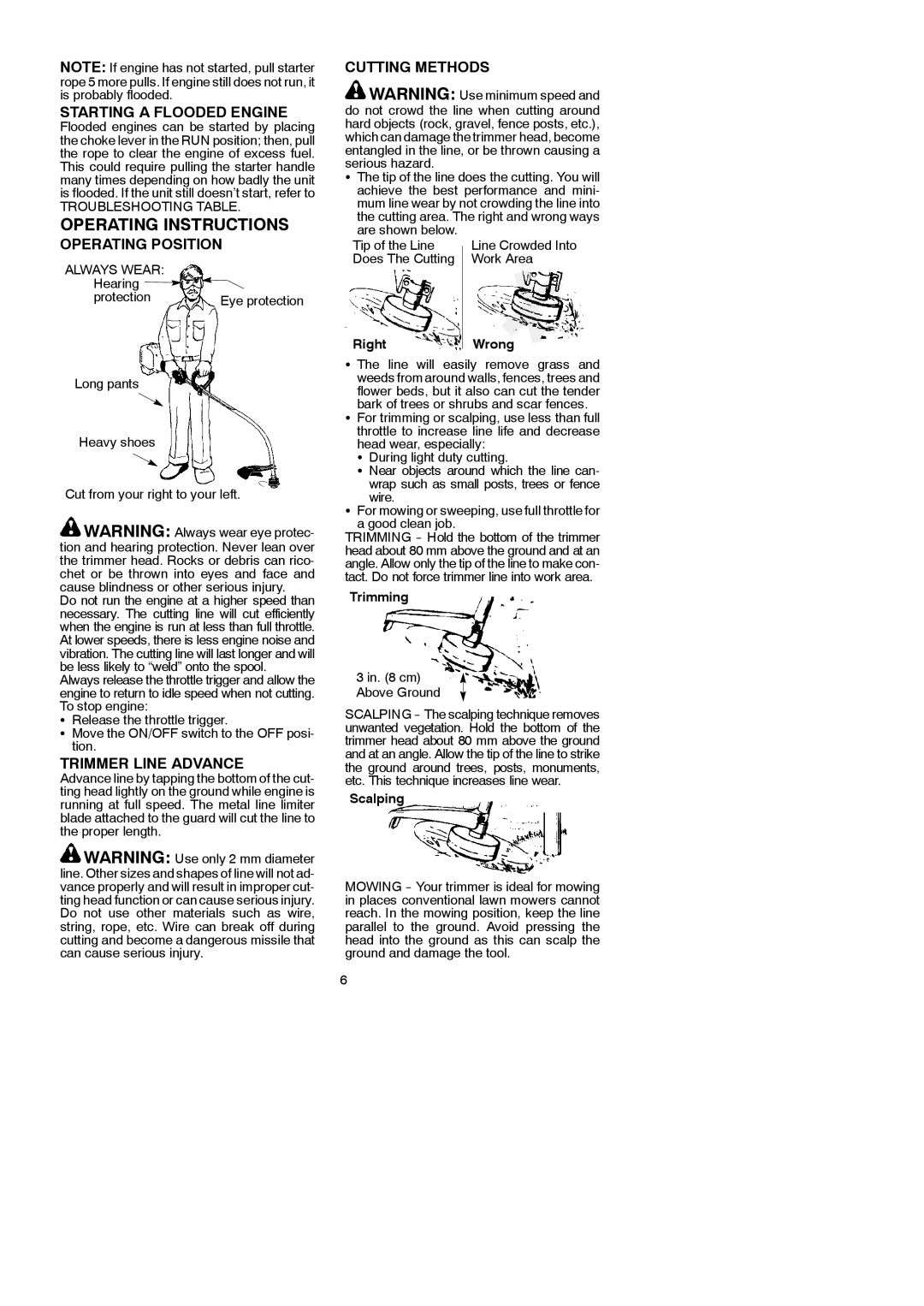545097742 specifications
The McCulloch 545097742 is a reliable and powerful chainsaw designed to cater to both professionals and avid DIY enthusiasts. Equipped with a host of impressive features, it offers an efficient cutting experience for a variety of tasks, including tree felling, limb removal, firewood cutting, and general yard maintenance.One of the standout features of the McCulloch 545097742 is its robust engine. The chainsaw is powered by a 50 cc, 2-stroke engine that delivers high performance while maintaining fuel efficiency. This powerful engine allows users to tackle even the most demanding cutting tasks with ease.
The chainsaw boasts a 15-inch bar and chain, providing ample cutting length for larger branches and logs. The bar is specially designed for reduced friction, which not only enhances cutting efficiency but also prolongs the life of the chain. The low-kickback chain design enhances safety and minimizes the risk of accidents during operation.
Comfort and user-friendliness are paramount with the McCulloch 545097742. The chainsaw features an ergonomic handle design that provides a comfortable grip, reducing fatigue during extended use. The adjustable chain tensioning system allows operators to make quick and easy adjustments to the chain's tension, ensuring optimal cutting performance.
Another important technological aspect of the McCulloch 545097742 is the easy-start system. The chainsaw is equipped with a simple pull-start mechanism that significantly reduces the effort required to start the engine, making it accessible for users of all skill levels.
Safety features are integrated into the design, including a chain brake that quickly stops the chain in the event of kickback. This feature enhances user safety and provides peace of mind while operating the chainsaw.
Additionally, the McCulloch 545097742 is constructed with durability in mind. Its rugged design can withstand the rigors of heavy-duty use, while the robust materials used in its construction ensure longevity.
Overall, the McCulloch 545097742 combines power, performance, and safety, making it an excellent choice for anyone in need of a dependable chainsaw for their cutting needs. Whether you are a professional arborist or a hobbyist, this chainsaw is designed to deliver impressive results while providing user comfort and safety.

